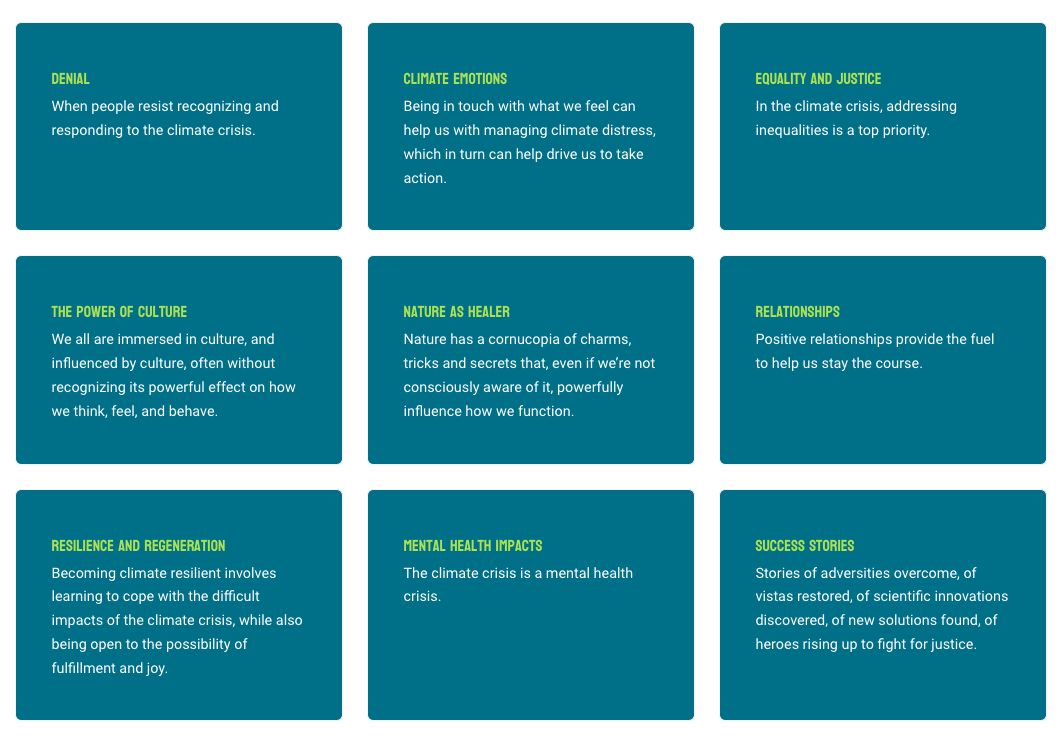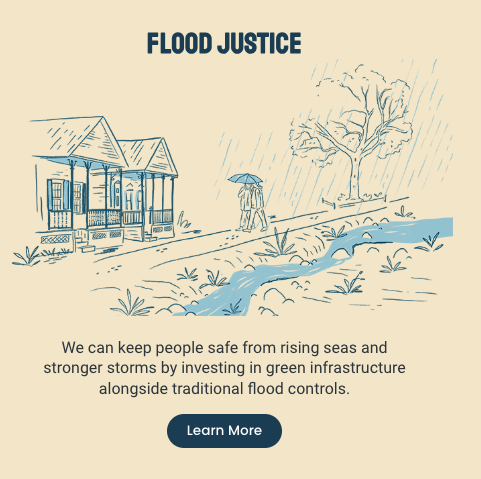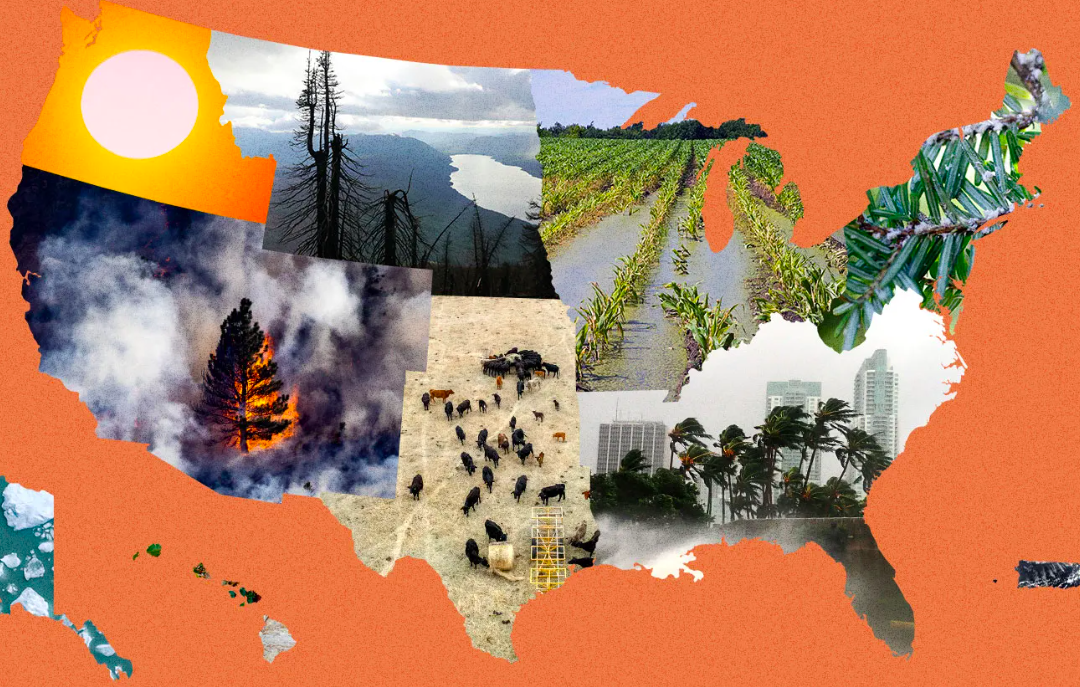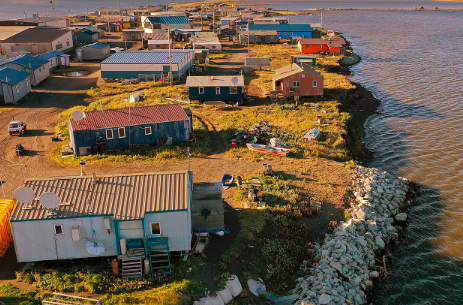Resources
Search below for resources covering the intersection of climate engagement, social science and data analytics.
RESULTS
Pathways to Power Workshop
How are you measuring your organization’s efforts and advances towards meaningful long-term change? Would you like to begin the process of identifying a unique set of metrics that best suit your organizational goals and power-building strategies?
Environmental Polling Roundup - January 19th, 2024
This post includes climate and environment headlines, data points, and key takeaways from recent public polls - including a new analysis of the impact of voters’ climate attitudes on the 2020 presidential election results, new polling on electric vehicles, new polling on competitiveness with China on clean energy, and a new analysis of climate justice attitudes across Yale and George Mason’s “Six Americas” segments.
Support for climate justice across Global Warming’s Six Americas
Support for climate justice and recognition of climate disparities vary widely across global warming’s “Six Americas”. More climate-conscious Americans are both much more likely to recognize existing climate disparities and much more likely to support the goals of climate justice than Americans who are less concerned about global warming. However, even among the segments who are most attuned to the issue of climate change, most are not hearing about “climate justice” as a concept. The Alarmed and Concerned segments (who make up 56% of the U.S.
We Can Decarbonize Heavy Industry. Here's How.
Climate pollution from heavy industry has long been deemed "hard-to-abate". That's far from the truth—technological solutions are at hand, and a smart policy agenda can drive industrial decarbonization to put us on track for key climate targets. To get it done, this resource argues that we need to put industry at the center of climate policy and advocacy. For too long, the climate community has left the industrial sector at the bottom of its to-do list.
This resource is a trusted source for current research and thinking on how psychological factors drive the climate crisis, how the worsening crisis affects us psychologically, and what we can do about it. You can browse Ecopsychepedia entries by one of our nine themes: Denial, Climate Emotions, Equality and Justice, the Power of Culture, Nature as Healer, Relationships, Resilience and Regeneration, Mental Health Impacts, and Success Stories.
Towards Economic and Climate Justice: A Feminist Analysis of Critical Trends
The 21st century has been marked by a series of overlapping crises that accentuate gender inequalities. These include the climate emergency and biodiversity loss to soaring debt levels, escalating inflation rates, and deepening inequality and poverty—all with severe consequences for the rights of women, girls and gender-diverse people. Women and gender-diverse people face disproportionate consequences of neoliberalism and its manifestations in austerity, debt, and an unequal trade regime.
This website is a celebration of Just Infrastructure projects taking root as federal water dollars flow. It is also a storytelling resource for those pushing for equitable spending and future funding. For example, from urban greening in New Orleans and Chicago to drought preparedness in the San Joaquin Valley and the Navajo Nation, federal funding and local organizing are laying the groundwork for a just and resilient water future. The Bipartisan Infrastructure Law and Inflation Reduction Act together include more than $60 billion for water projects.
Promoting Equitable Wildfire Recovery in Lahaina: Four Lessons for Local Leaders, from Colorado’s Marshall Fire
The Marshall Fire was the most destructive wildfire in Colorado’s history. Before the Marshall Fire, 97 percent of homeowners had insurance compared with 70 percent of renters. And a year after the fire, renters were significantly more likely to be displaced from their home (62 percent) compared with homeowners (40 percent). Renters face other challenges too, with 63 percent of those still living in the same property as before the fire reporting that their landlord had raised their rent. The number of respondents who agreed that “as our community rebuilds, we should work to provide more affordable housing in this area” fell between survey waves by 9 percentage points, and the drop was especially pronounced among those who suffered the greatest damage, where support for affordable housing fell by 15 points, from 62 percent to 47 percent. After the Marshall Fire, we found 36 percent of survey respondents attended a fire-related meeting, but only 23 percent of households earning less than $75,000 per year did. Similarly, 39 percent of homeowners reported attending a meeting, versus 14 percent of renters. Among the survey respondents who were 55 years old or older, 39 percent attended a meeting, compared with 37 percent of respondents ages 35–54 and just 20 percent of those ages 18–34.
The Fifth National Climate Assessment, released on Tuesday by the Biden administration, is unique for its focus on the present. Like previous versions, it looks at how rising temperatures will change the United States in decades to come, but it also makes clear that the rising seas, major hurricanes, and other disastrous consequences of climate change predicted in prior reports have begun to arrive. The effects are felt in every region. The report outlines steps every level of government can take to combat the climate crisis. And it takes stock of progress that has been made over the past four years. Despite this progress, climate impacts — oppressive heat domes in the Southeast that linger for weeks on end, record-breaking drought in the Southwest, bigger and more damaging hurricanes in the Atlantic basin, wildfires of unusual duration and intensity along the West Coast — are accelerating. The Grist staff, located all over the country, reviewed the assessment to provide you with the most important takeaways for your region.
New US climate report says land theft and colonization amplify the climate crisis for Indigenous peoples
Indigenous self-determination is a key climate solution — if the federal government can get behind it. The latest National Climate Assessment cites a 2021 study that concluded that Indigenous peoples in the United States lost 99 percent of their territories through colonization, and that the lands that they were forced to move to face higher wildfire risk and worse drought than their traditional homelands. According to the authors, Indigenous peoples across the continental U.S. and its island holdings hail from more than 700 tribes and communities, and while each community has a different relationship with the federal government, all share similar experiences of colonization through stolen land, cultural assimilation, and persistent marginalization. The report also detailed problems with the National Flood Insurance Program, a federal insurance program managed by the Federal Emergency Management Agency that helps homeowners insure against the risk of flooding, something that many insurance companies won’t cover. The program is supposed to help communities mitigate flood risk, but the report found that its implementation in Native communities has been flawed and ineffective.
Pagination
- Page 1
- Next page







